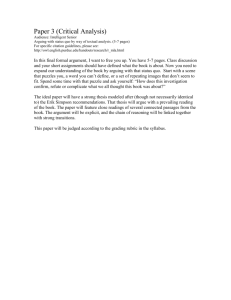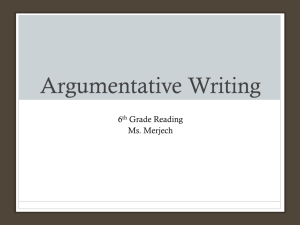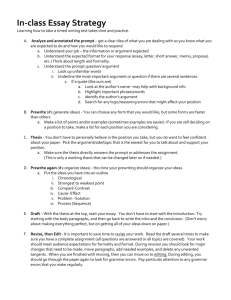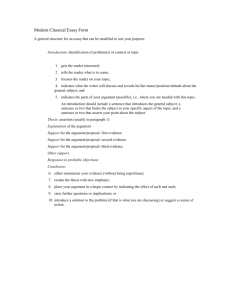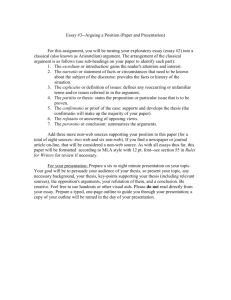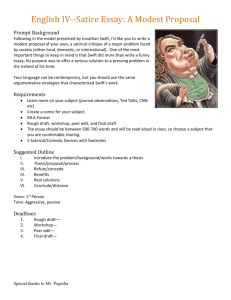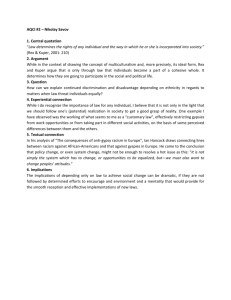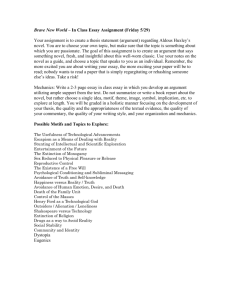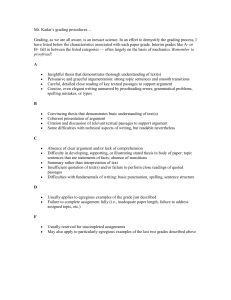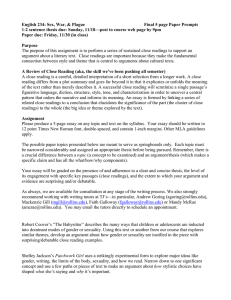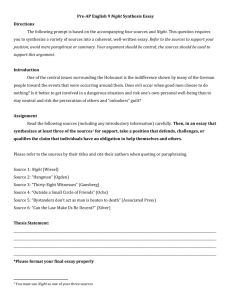The Analysis: A Quick Guide
advertisement
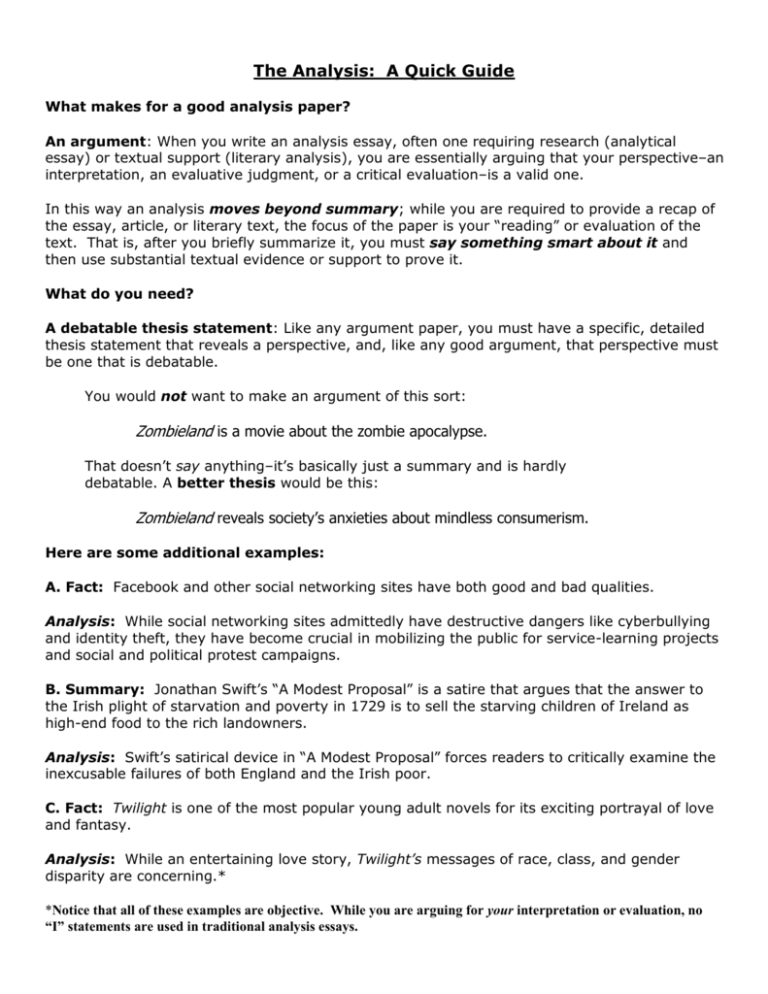
The Analysis: A Quick Guide What makes for a good analysis paper? An argument: When you write an analysis essay, often one requiring research (analytical essay) or textual support (literary analysis), you are essentially arguing that your perspective–an interpretation, an evaluative judgment, or a critical evaluation–is a valid one. In this way an analysis moves beyond summary; while you are required to provide a recap of the essay, article, or literary text, the focus of the paper is your “reading” or evaluation of the text. That is, after you briefly summarize it, you must say something smart about it and then use substantial textual evidence or support to prove it. What do you need? A debatable thesis statement: Like any argument paper, you must have a specific, detailed thesis statement that reveals a perspective, and, like any good argument, that perspective must be one that is debatable. You would not want to make an argument of this sort: Zombieland is a movie about the zombie apocalypse. That doesn’t say anything–it’s basically just a summary and is hardly debatable. A better thesis would be this: Zombieland reveals society’s anxieties about mindless consumerism. Here are some additional examples: A. Fact: Facebook and other social networking sites have both good and bad qualities. Analysis: While social networking sites admittedly have destructive dangers like cyberbullying and identity theft, they have become crucial in mobilizing the public for service-learning projects and social and political protest campaigns. B. Summary: Jonathan Swift’s “A Modest Proposal” is a satire that argues that the answer to the Irish plight of starvation and poverty in 1729 is to sell the starving children of Ireland as high-end food to the rich landowners. Analysis: Swift’s satirical device in “A Modest Proposal” forces readers to critically examine the inexcusable failures of both England and the Irish poor. C. Fact: Twilight is one of the most popular young adult novels for its exciting portrayal of love and fantasy. Analysis: While an entertaining love story, Twilight’s messages of race, class, and gender disparity are concerning.* *Notice that all of these examples are objective. While you are arguing for your interpretation or evaluation, no “I” statements are used in traditional analysis essays.
